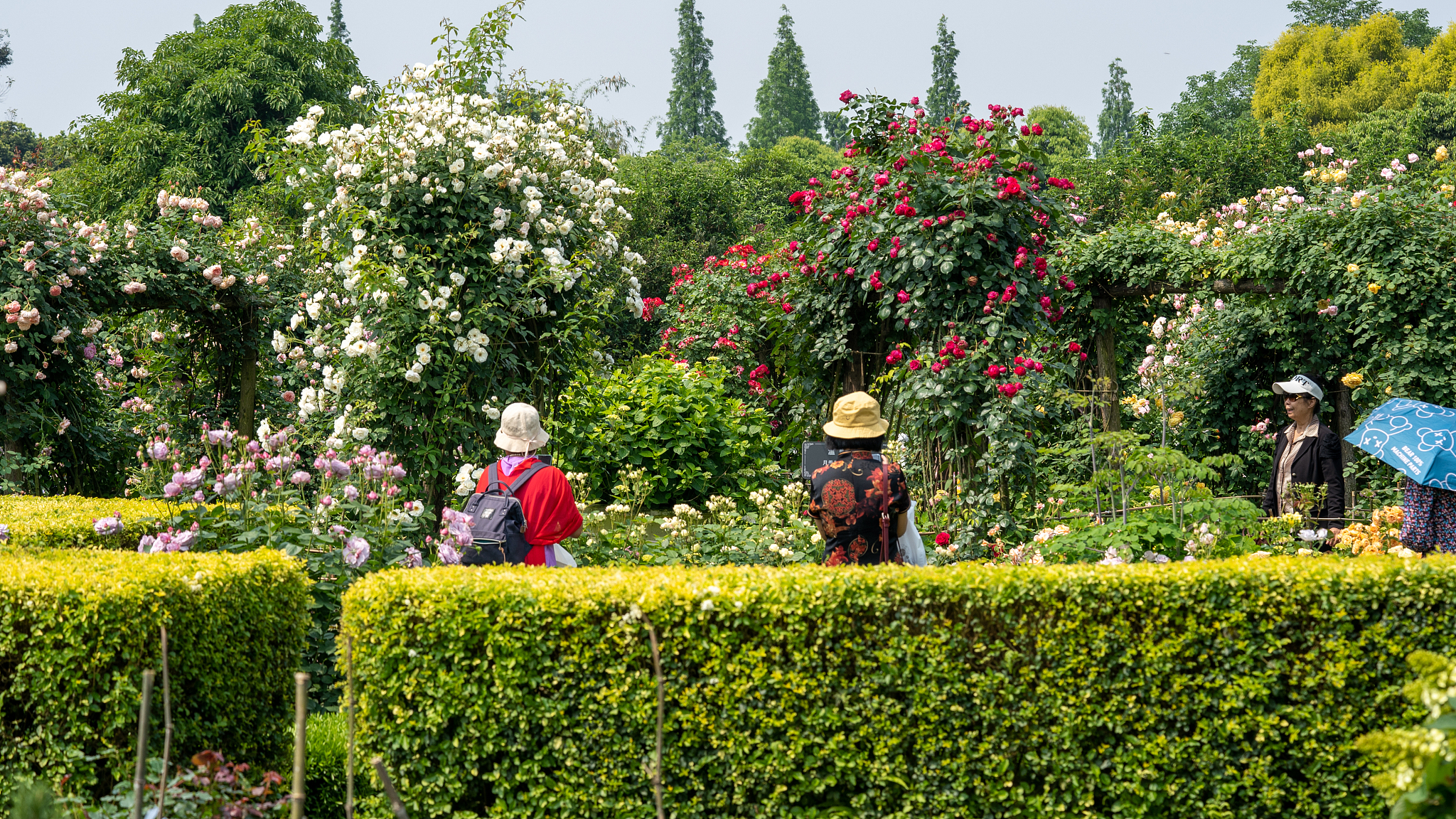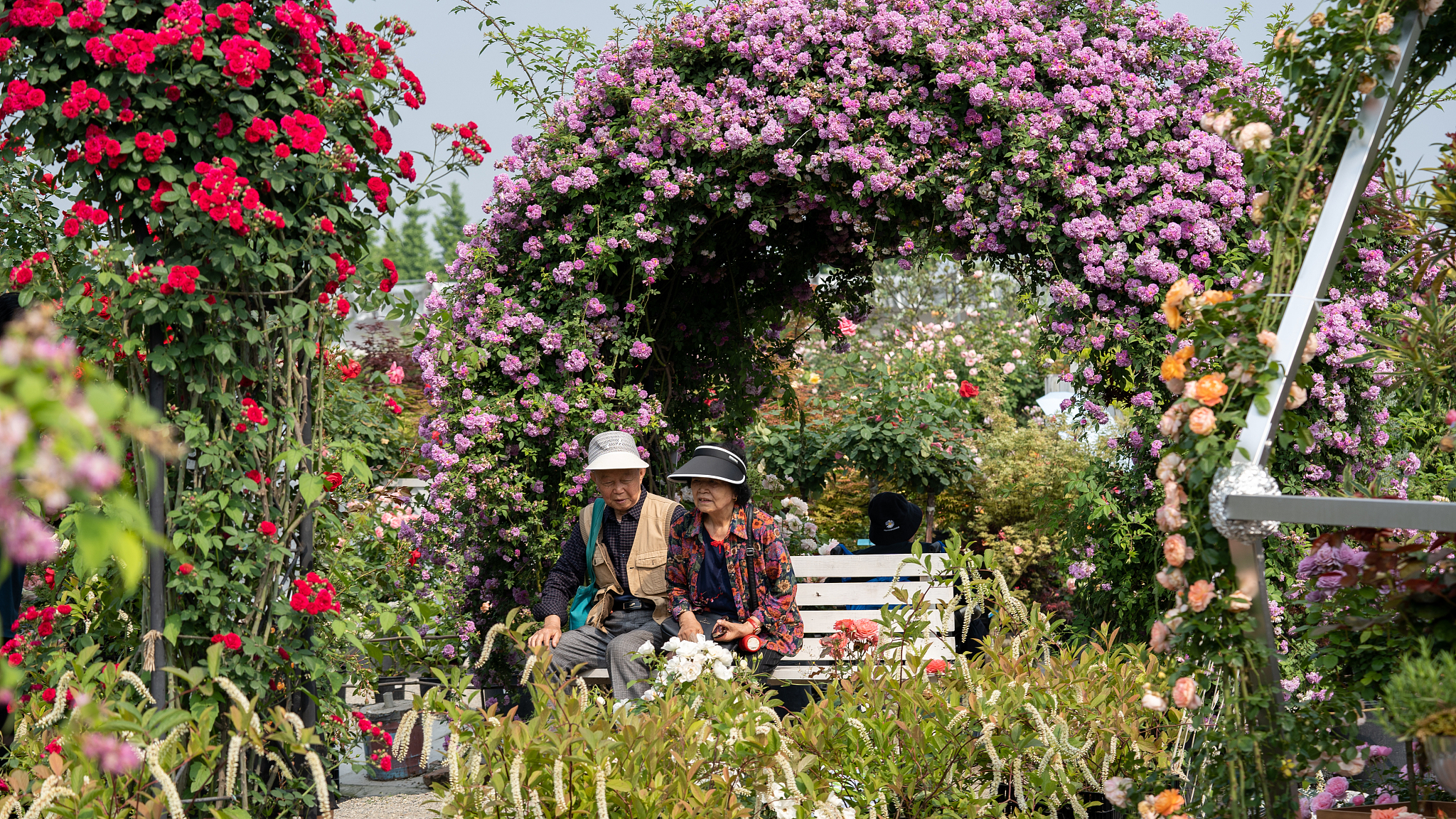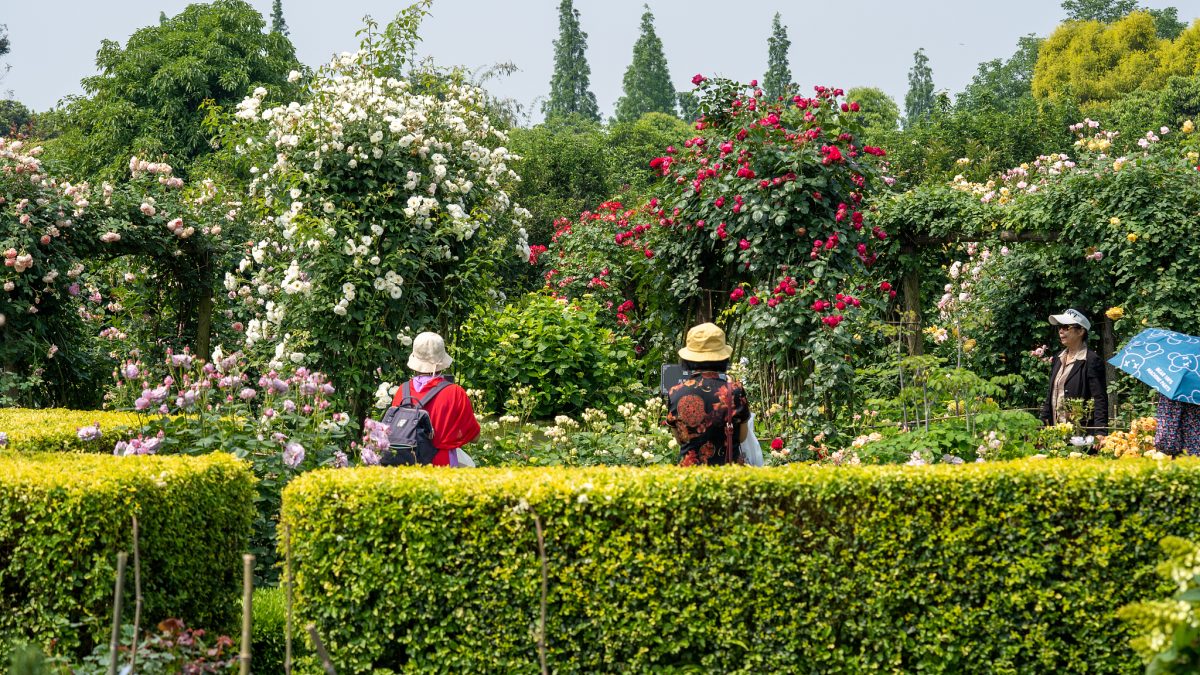In Chengdu, southwest China’s Sichuan Province, an over 3,000-square-meter garden is home to more than 2,000 plant species, platforms filled with bouquets for sale and arches weaving a narrative of color and fragrance, beckoning visitors into their embrace.
Among the bouquets, several employees are busy broadcasting live from their cell phones. Meanwhile, the garden’s owner, “Heidi’s Mama,” Qiu Yamin, introduces the flowers to snap-happy tourists and intrigued international breeders.
Qiu, the founder of the “Heydear Garden” brand, was appointed the promotion ambassador of the International Horticultural Exhibition 2024 Chengdu.
Since founding a 13.5-square-meter fresh flower shop in 2008, fueled by her passion, Qiu has dedicated years of hard work to its success. After the birth of her second child, Qiu renamed her business after her daughters “Heidi and Lulu’s Garden.” She has risen to prominence as an “internet-famous” flower grower, delivering approximately 5 million packages by 2023. With a social media following of tens of millions, she is endearingly referred to as “Heidi’s Mama” by her admirers.
Through the integration of online and offline channels, her business has seen remarkable growth. She established her own base, importing and selecting varieties from around the globe and engaging in production and breeding, resulting in an average annual compound growth rate exceeding 60 percent.
“People’s pursuit of nature and beauty has enabled the flourishing development of the home gardening market in China,” said Qiu.
 People visit Heidi and Lulu’s Garden in Chengdu City, southwest China’s Sichuan Province, April 27, 2024. /CFP
People visit Heidi and Lulu’s Garden in Chengdu City, southwest China’s Sichuan Province, April 27, 2024. /CFP
People visit Heidi and Lulu’s Garden in Chengdu City, southwest China’s Sichuan Province, April 27, 2024. /CFP
Through years of exploration, Qiu has gained profound and unique insights into the horticultural industry’s consumer market in China. She believes that the essence of the home gardening market lies in its emotional appeal, a vibrant vitality exhibited by plants during their growth process, which serves as excellent “emotional regulators” for plant enthusiasts.
“People aspire to create their own ‘poetry and distant lands’ on a balcony through home gardening, aiming to have a more open urban space where they can coexist and share with plants, insects and birds,” Qiu explained.
A team of international breeders visited Qiu’s garden on the sideline of the International Horticultural Exhibition 2024 Chengdu to see how Chinese horticulturalists utilize e-commerce to further deepen the home gardening market.
Qiu believes the widespread adoption of e-commerce has brought revolutionary changes to the Chinese home gardening market. In 2014, Qiu seized the opportunity to open a store on Taobao, a major online shopping website run by Alibaba, which has since expanded to 10 online stores. Additionally, her planting area has grown from the initial 0.53 hectares to 33 hectares, with an expected production volume of around 67 hectares.
“In the past, gardening shops in Chinese cities were mostly located in the suburbs, existing in the form of ‘flower markets.’ Compared to many Western countries with garden centers, purchasing was relatively inconvenient, and it did not become a common habit,” Qiu said.
“But since the advent of e-commerce channels, purchasing gardening products has become increasingly convenient and affordable. Moreover, Chinese online selling platforms reach a broader audience and offer a more comprehensive range of gardening products than any single garden center.”
To improve production and sales efficiency and meet the demand for intelligent management in the Chinese market, Qiu’s team collaborated with a software company to develop a smart management system.
This system enables effective traceability, allowing for the identification of issues such as improper watering, fertilization, or pesticide management for every flower or leaf sold, ensuring quality control throughout the supply chain.
 People visit Heidi and Lulu’s Garden in Chengdu City, southwest China’s Sichuan Province on April 27, 2024. /CFP
People visit Heidi and Lulu’s Garden in Chengdu City, southwest China’s Sichuan Province on April 27, 2024. /CFP
People visit Heidi and Lulu’s Garden in Chengdu City, southwest China’s Sichuan Province on April 27, 2024. /CFP
Qiu’s insightful perspectives have also influenced global breeders who are optimistic about the Chinese market.
Christian Kappler, a business development manager at Benary, said he was “blown away” by the speed of development in China. “It’s incredible how much things change from one year to the next. This trip is the first time I’ve seen an online business here.”
“The shipment and logistics pose a real challenge to the plants to arrive healthy,” he said, reflecting on his impression of Qiu’s online shipment system. He added that it offered inspiration when facing the challenges of bringing bedding plant genetics to consumers.
“Perhaps we need to innovate our breeding process to better meet market needs. Each place has offered unique insights into our business and partnerships with our Chinese counterparts. We’re excited to continue exploring and learning,” he said.
Yoav Scholz Sagie, key account manager at Volmary, highlighted the vast potential for the global market’s expansion and reaching end consumers in China, indicating significant room for growth.
“In Europe and North America, if you want to gain market share, you need to take it away from competitors. Here, there’s so much potential, additional potential, without even fighting. There’s ample space for everybody,” said Sagie, adding that understanding what Chinese customers are looking for is vital.
As the promotion ambassador for this year’s international horticultural expo, Qiu hopes to leverage this opportunity to further promote home gardening.
Qiu also plans to use this opportunity to engage in learning and exchange with international counterparts, spreading Chinese horticultural concepts to the world.
Source(s): Xinhua News Agency
